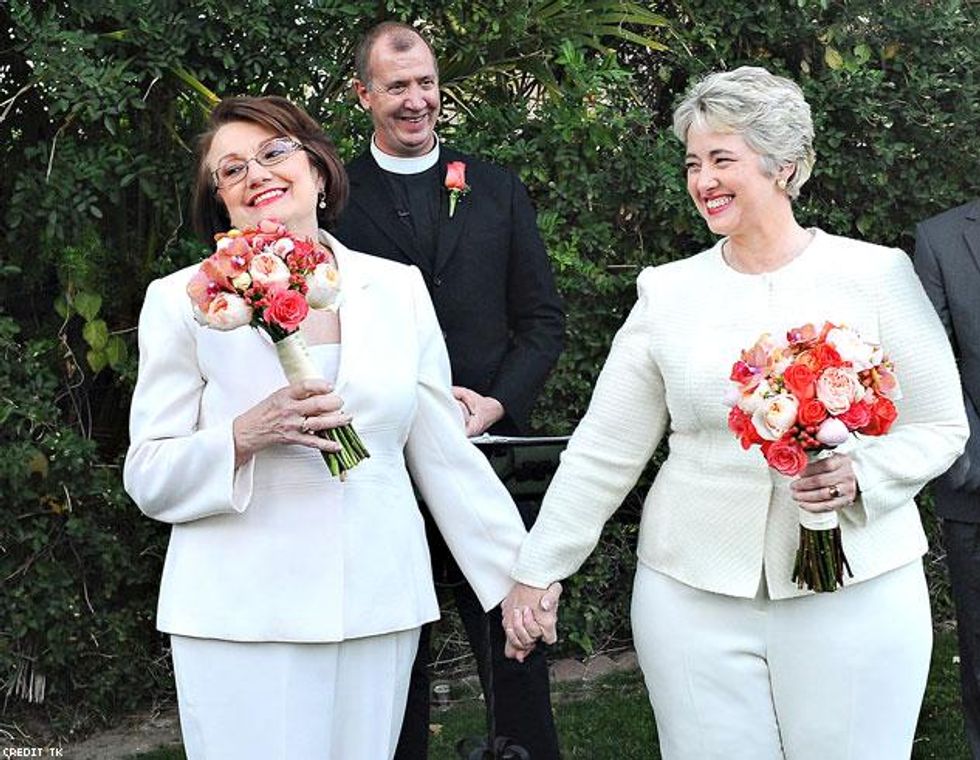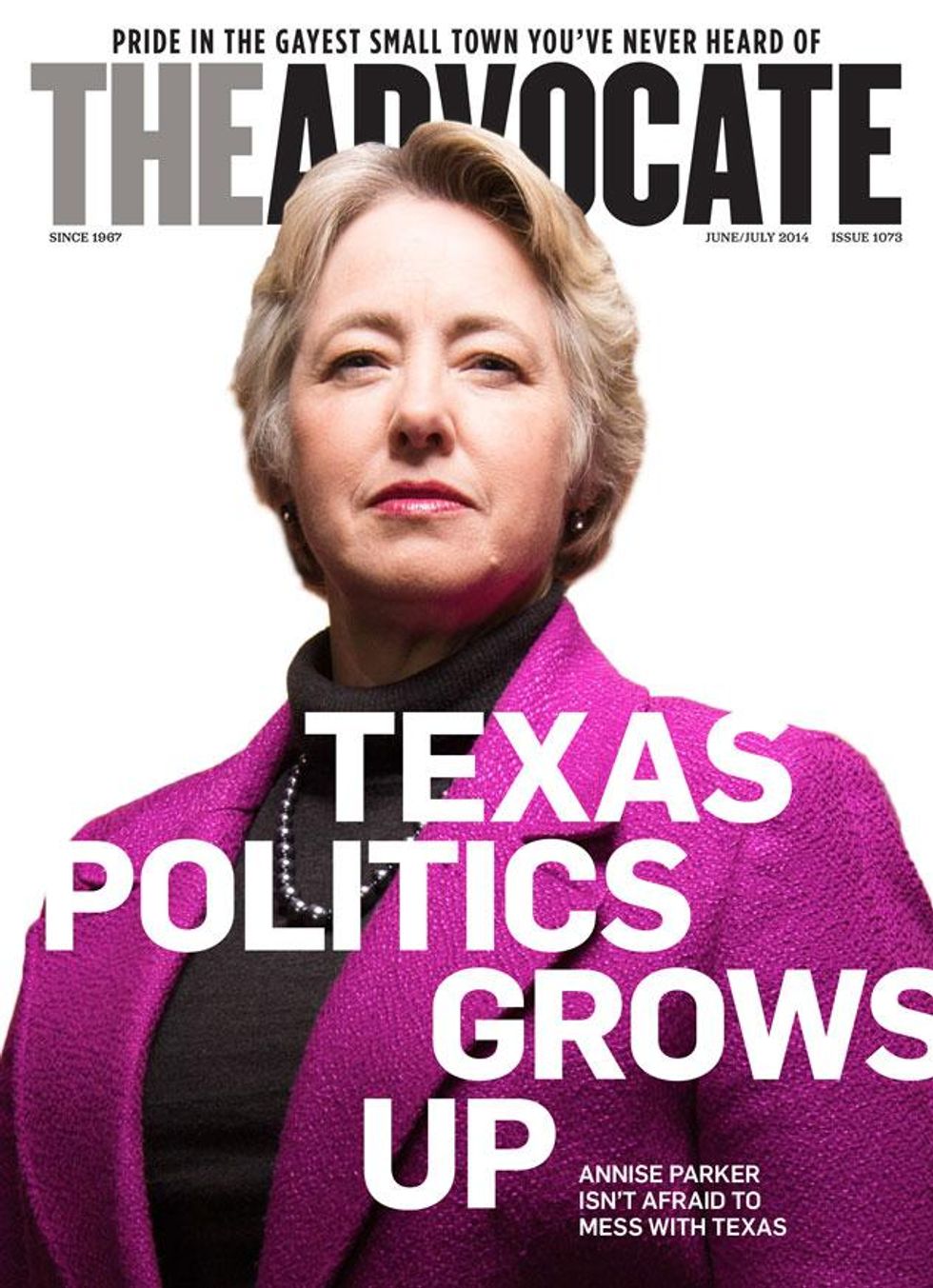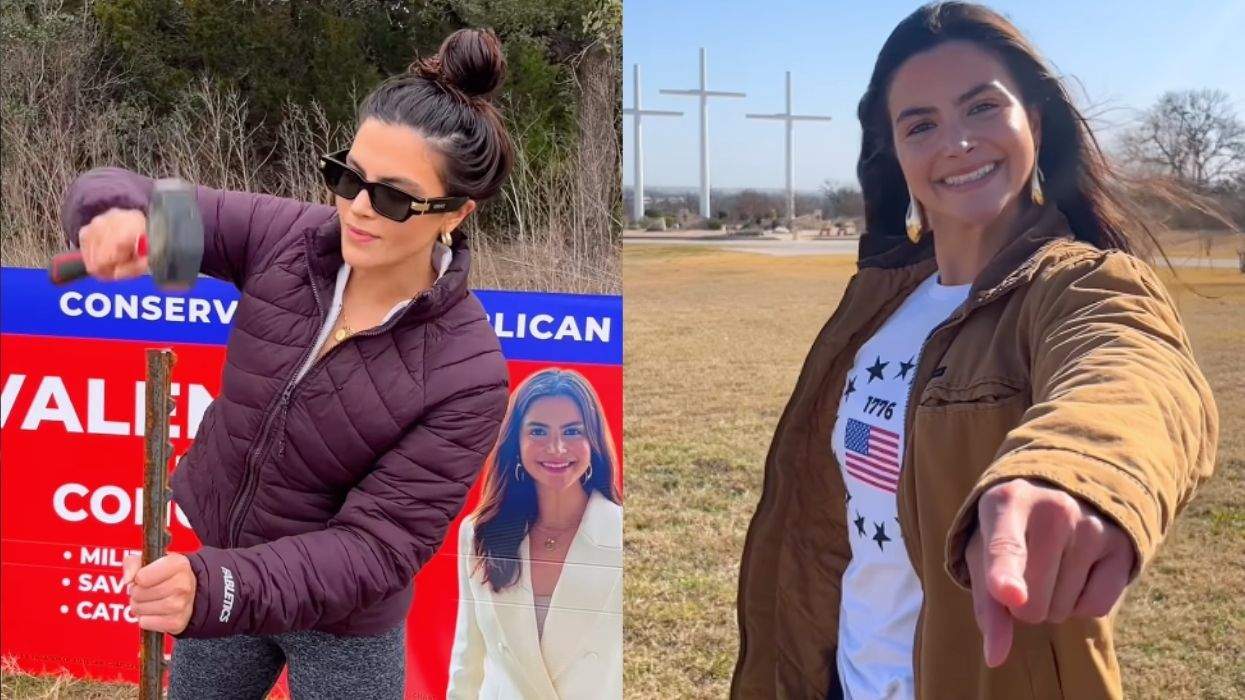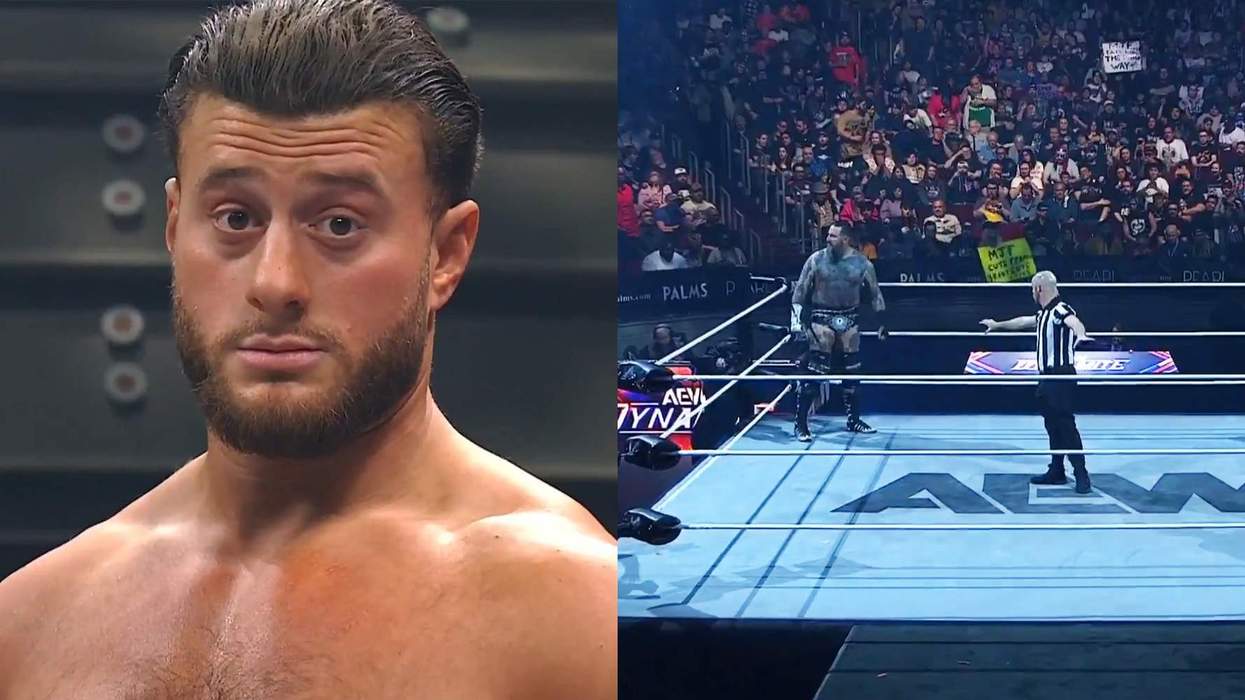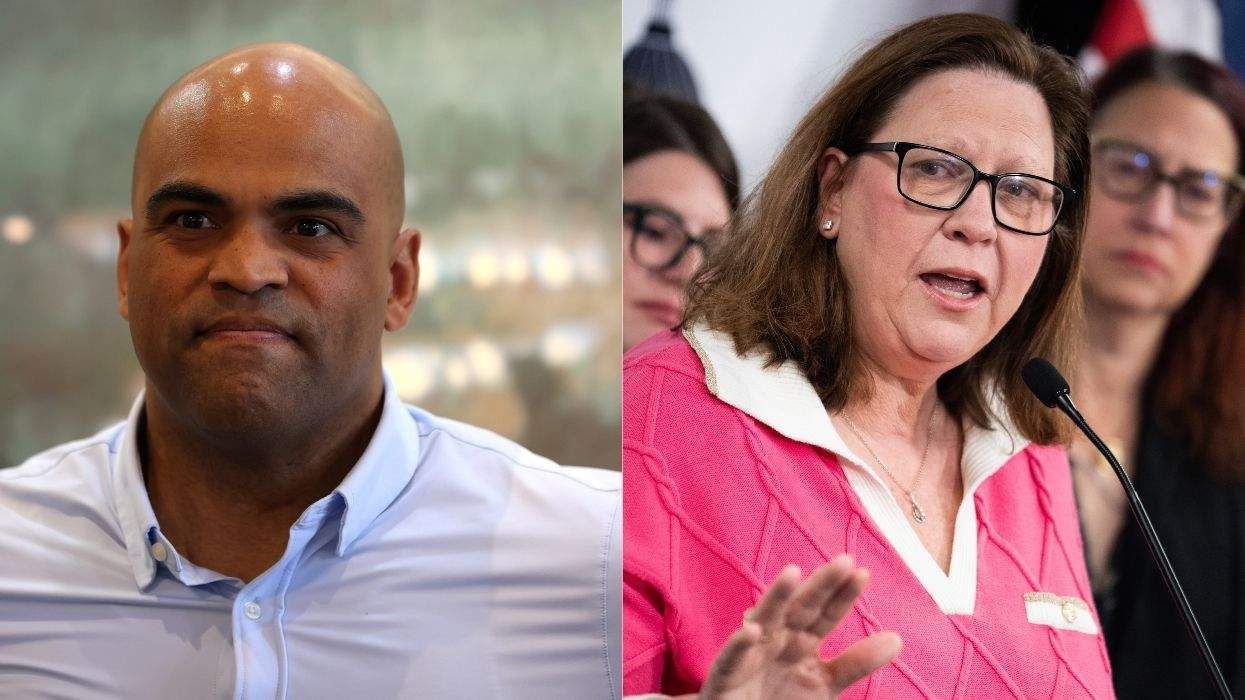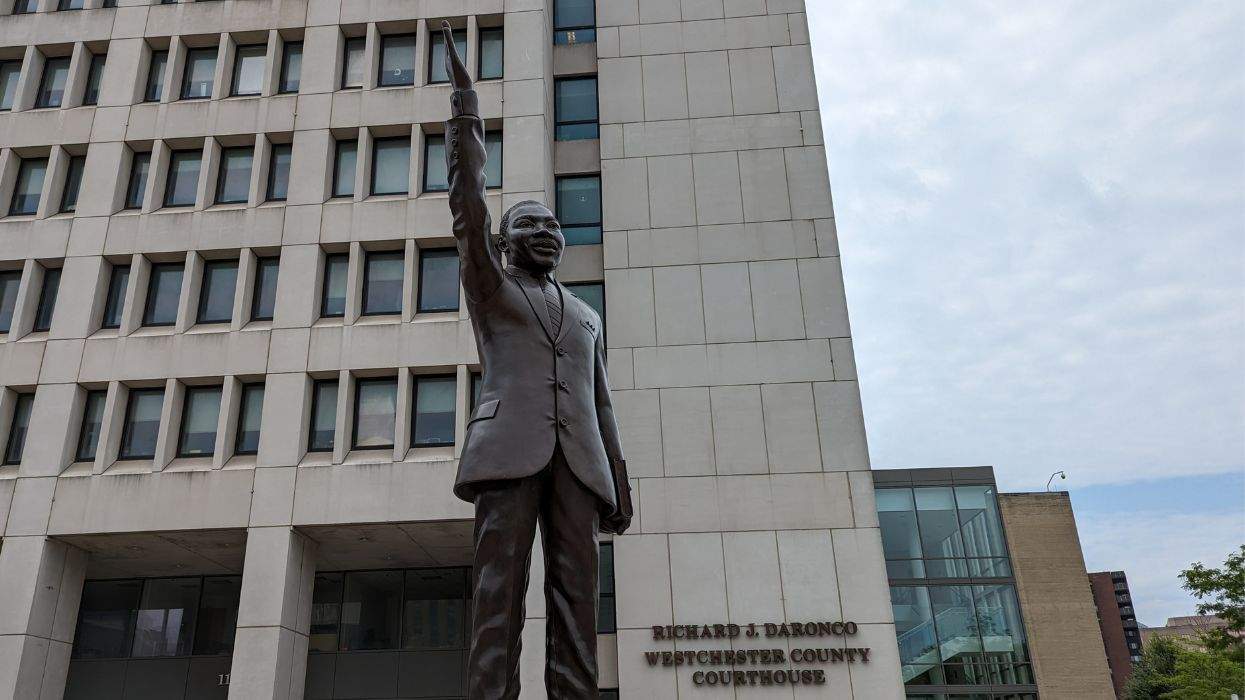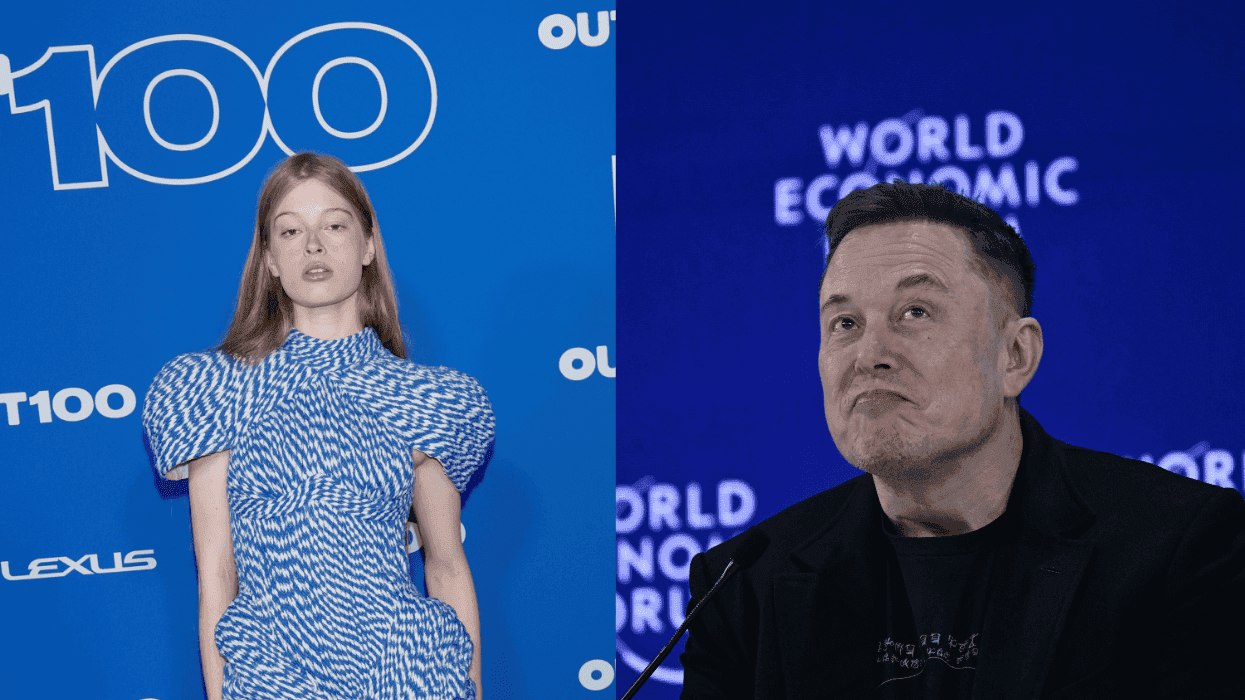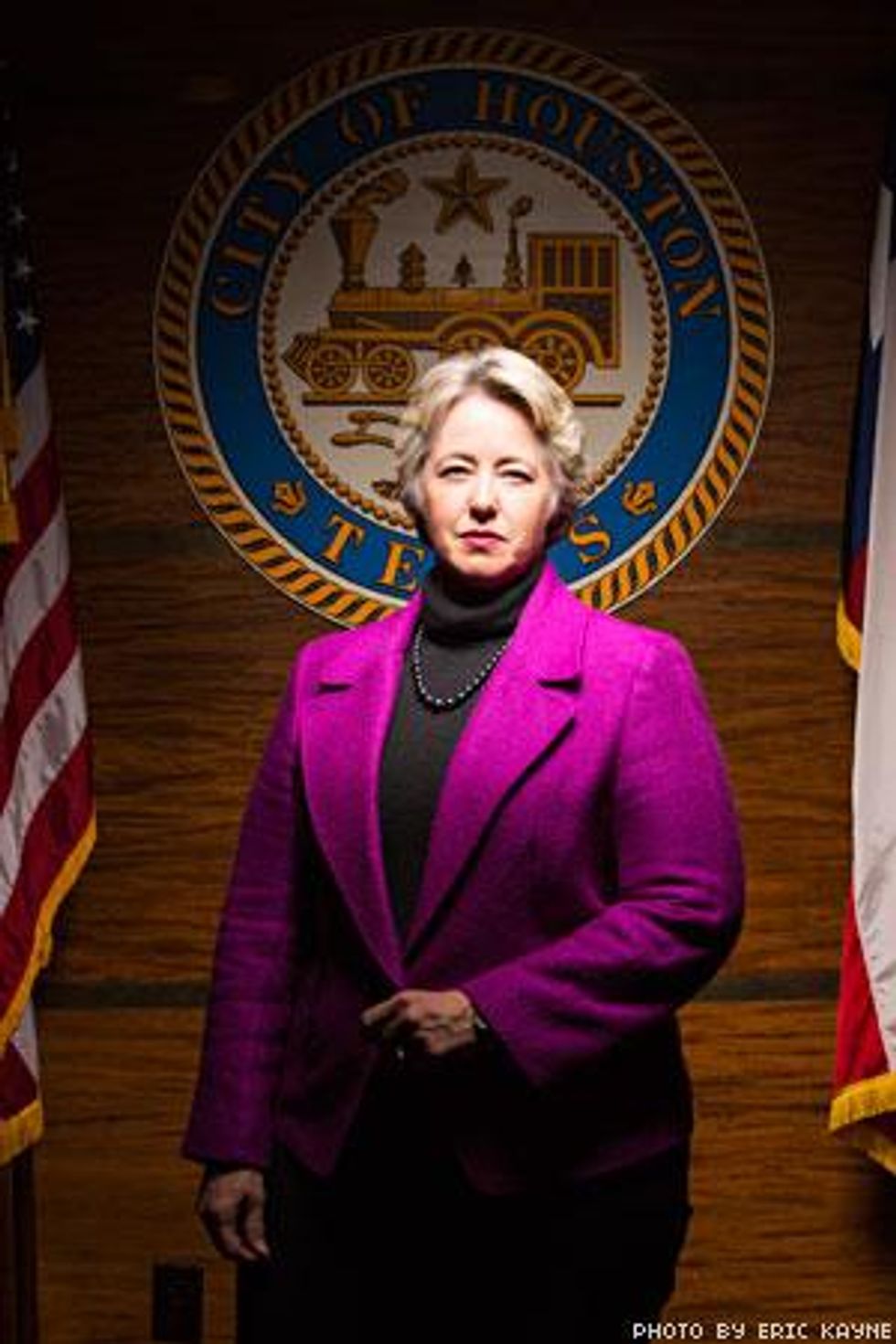
The gaffe revealed plenty about the political climate of mid-1980s Texas, where prejudice was often shouted, not sotto voce. A nondiscrimination ordinance to protect city employees was handily defeated in a referendum after right- wingers mobilized against it. A group of antigay candidates dubbed themselves the Straight Slate and polled well in elections in 1985, the year that Welch's indiscretion contributed to his defeat by the progressive Kathy Whitmire.
Welch died in 2008 and did not live to see the irony that the poisonous antigay atmosphere of 1980s Houston helped shape the character and convictions of the woman who became the first lesbian mayor of a major U.S. city.
Annise Parker's election in December 2009 made headlines from Midland-Odessa to Melbourne. Last year, with much less media rumpus, she easily won her third consecutive two-year term, now the maximum allowed. Ed Murray, who is also out, was elected mayor of Seattle on the same November night.
In a couple of years, Parker will be seeking a new role in Texas politics, perhaps even mulling a run for governor. But is the nation's second-most populous and most notoriously conservative state ready for an out and proud gay politician to hold prominent statewide office? And are the tactics that worked for Parker in Houston a blueprint for success in other cities and other states?
Parker is not just a lesbian, she's also a Democrat. It's tempting to apply Manhattan's unofficial theme song to the Lone Star State; surely, if she can make it here, she'll make it anywhere. In truth, the demographics are not as unfavorable as one might think.Texas lives up -- or down -- to its stereotypes in many ways, its perception as a blood-red Republican state ignores the differences between its urban and rural areas. The GOP dominates in statewide races, where no Democrat has been elected since 1994, but Texas's biggest cities can, and do, dye themselves blue. Barack Obama won Houston, Dallas, San Antonio, and Austin in the 2012 presidential election. Yet he only secured 41% of the vote statewide, underlining the deep conservatism of the suburbs and countryside.
Houston is an epic, sticky, homely mess whose association with problems goes far beyond Apollo 13. Heedless growth has been abetted by a boomtown mentality and ample space, coupled with a lack of zoning laws and a focus on creation rather than preservation. And there are flying cockroaches.
But the city's affordable housing, abundant jobs, and status as the world capital of the energy industry have molded it into a prosperous and underrated international hub on track to oust Chicago as the United States's third-most populous city. A 2012 Rice University study found that Houston's metropolitan area was the most diverse in the nation.
Parker soon realized that interest in her sexual orientation gave her an opportunity to counter the city's reputation. "As my public profile went up, Houston's public profile went up," she tells me in her Texas-sized office downtown, shortly before heading off to Houston's livestock show and rodeo. At the rodeo parade a couple of days earlier, she rode a horse through the streets sporting a cowboy hat and a belt buckle big enough to double as a Frisbee.
"When I was elected more than four years ago, it got worldwide media attention. Mayors of Houston don't merit a box on the front page of the Times of India. It was 'Lesbian Mayor Elected Mayor of Houston,' or 'Houston Elects Lesbian Mayor,'" she says.
"The entertainment-focused media on the West Coast and the news-focused media on the East Coast -- neither side paid much attention to what happened down in Houston except to make fun of us. I was able to give people a glimpse of a different kind of Houston and suddenly we started popping up on 'best of' lists." A few months after taking office, Parker was named in Time magazine's annual list of the world's 100 most influential people (as was Sarah Palin).
Parker had no novelty value in her hometown, where she had already won six elections: three to the city council and three as city controller, a key financial office. Born in Houston in 1956, she graduated from Rice and spent two decades in the oil and gas industry.
While the oil business is politically conservative, the combination of the Texan frontier mentality and the quest for profit, exploration, and exploitation fosters a can-do spirit that values results over reputation. Houston, despite its Bible Belt location and the religious conservatism it connotes, is an especially pragmatic town. Thanks to Parker's experience and professionalism, the lesbian Democrat was a sensible choice for the city in 2009 amid an economic downturn that required difficult decisions.
Parker's resume helps explain how she combines liberal social policies with fiscal conservatism. While gradually growing more prominent as a community activist, Parker spent 18 years working as a computer-savvy economic analyst for Mosbacher Energy, a Houston company controlled by a prominent Republican family. It was founded by Robert Mosbacher Sr., who was a close friend of President George H. W. Bush, served as U.S. secretary of commerce, and was a major GOP fundraiser.
After Mosbacher's death in 2010, Parker told the Houston Chronicle that she admired his leadership style. "He had a profound influence on me. He made it clear he knew something about me personally. He felt it important to make that connection to people. It was good for business and it made the office run more smoothly," she said. "I also learned you never fall in love with a deal. The numbers always have to make sense. That is a value I absorbed there and have tried to take into government." But government and elections are distinct matters.
"If people thought that conservatives would hold her sexuality against her, they've demonstrated that they haven't," says Mustafa Tameez, a Houston-based political strategist who worked with Parker on an ordinance to curb payday lending firms.
"It doesn't mean that every conservative is OK with it, but enough [voted] to get her elected in a fairly good margin in parts of town that people would have said were not winnable for her. She's done that because she has demonstrated that she can do the job and, at the end of the day, most people that are reasonable are judging others on their ability to get the job done, more so now than ever before," Tameez says.
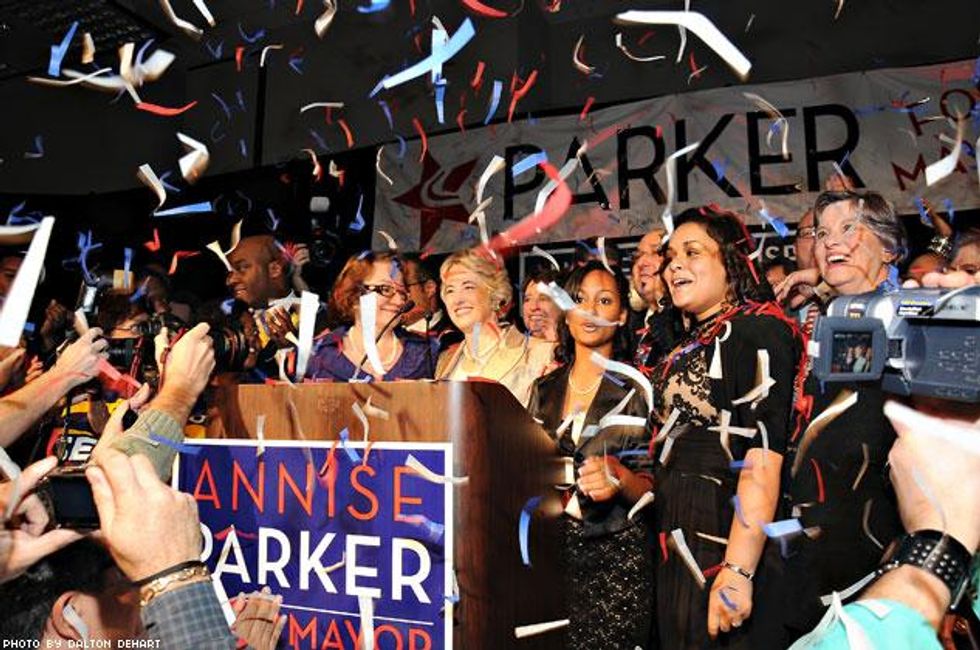
Annise Parker with her wife, Kathy Hubbard, (second from left) and their children (from left) Jovon Tyler, Marquitta Parker and Daniela Parker celebrating the election heard 'round the world
When she was first elected to the city council in 1997, after two unsuccessful runs, Parker was deliberately frank about her sexuality, turning it into an asset, or at least neutralizing it.
"You have to know who you are and be comfortable with who you are before you enter a political race," Parker says. "I talk to potential GLBT candidates and they'll say things like, 'My sexual orientation is nobody's business. My sexual orientation is not going to be a subject of the campaign, and I'm just not going to talk about it.' I'm sorry, that's not a good enough answer. The worst thing is for anybody to feel that you're hiding something or there's something that you're ashamed of addressing in your past. "It's an inoculation technique. Because I had been out, my assumption everywhere I went was everybody knows I'm a lesbian, because I was a public spokesperson for the GLBT community, past president of the gay and lesbian political caucus -- I put that on every printed piece of literature we had as part of my political resume," she says.
"There was never an opportunity for someone to say, 'Do you know she's a lesbian?' Well, duh. It's here. There's a certain element in the community that says, 'If she will tell us the truth about that, I think she'll tell us the truth about anything.'"
Steven Kirkland, the Democratic candidate for judge of Houston's 113th district court, is a close friend of Parker's and is also gay. He describes her as both tenacious and compassionate. "It was kind of an oddity -- a curiosity -- to get people to look at her, initially. The fact that she is as smart as she is kept their attention," he says. "There are folks that will vote for her because she's gay, there are folks that will never vote for her because she's gay -- they're still around, although they're fewer in number than they used to be."
Parker says she considers herself a role model for the LGBT community and offers advice and support to young people and prospective politicians. She treats continued interest in her orientation as an inevitable step on the way to a point when sexuality ceases to be a factor in the curiosity.
"I'm looking forward to the time when it's no big deal, we stop checking off these milestones -- 'the first gay and lesbian person to do X and Y,'" she says. "I will say that we're inordinately interested in the personal lives of public figures. I think it will be that it's not such a big deal that someone is gay or lesbian, but I don't know we'll necessarily stop thinking it's interesting when they get married or divorced."
In 2009, the Houston Chronicle reported that a Christian antigay activist had sent out 35,000 fliers warning of the "deadly grip" of homosexuality using a photo of Parker and her now- wife, Kathy Hubbard, with the headline: "Is this the image Houston wants to portray?"
Aggressive rhetoric falls like acid rain during Texas campaigns, but Parker is thick-skinned. "Being an out activist here in Texas in the '70s, being a very, very, visible lesbian activist in the '80s, it was a very different time. I had death threats. I would debate homophobes on radio or TV and come out to the parking lot by myself and find my car covered with Bible tracts or the tires slashed," she says. "Nothing that's ever happened in a public meeting since I've been an elected official compares in any way to the pressures or the dangers of being a lesbian activist in those days."
In the week before we spoke, a federal judge ruled that the state's ban on same-sex marriage was unconstitutional, but stayed his decision to allow Attorney General Greg Abbott (he's also the current Republican gubernatorial candidate) to mount an appeal. He did so swiftly, while Texas GOP leaders brayed disgust at the judge's verdict.
The city of Houston is currently embroiled in a legal battle after right-wingers mounted a challenge to Parker's attempt to offer benefits to same-sex spouses of city employees. But the right's resistance is out of step with public opinion. Last year, a University of Texas/Texas Tribune poll found that about two-thirds of respondents back some sort of formal same-sex union, and support is growing.
In January, Parker married Hubbard, a tax consultant, at a private ceremony in Palm Springs, Calif. They held a large reception in Houston two months later. Together for more than 23 years, the couple have raised four children, all now adults; two daughters who were adopted out of foster care, a third girl who came to live with them as a teenager, and a boy they informally took in who was kicked out of his home for being gay.
"It was definitely bittersweet that we had to go to California," she says. "I had said we wouldn't marry until we could marry in Texas. But the Supreme Court ruling in the Windsor case was really a game-changer -- to have the federal government recognize legal spouses was a level of attention and recognition that caused me to say to Kathy, 'OK, I don't want to wait.'"
Kathy Hubbard and Annise Parker, together 23 years, wed in Palm Springs, Calif., in January
If she intends to run for statewide office after her stint as mayor finishes at the end of 2015, she will have plenty of time to pause and consider her next move ahead of the 2018 elections. By 2016, Wendy Davis could be starting her second year as governor. Or not. Current polling suggests Abbott will cruise to victory over Davis this year, in which case Democrats will be searching for their next great hope. No doubt a tough, credible, scandal-free veteran with strong name recognition would be a desirable choice.
"I hope Wendy Davis becomes the next governor of Texas, and then four years from now I'll be on a ticket with her, perhaps," says Parker. "I would like to stand for office again. I have run for everything I can here, really, at the local level."
Houston's City Hall is modest on the outside but the interior is opulent. Completed in 1939, the building has beautiful art deco details, marble lobbies, and noble mottoes. Virtue in the Civic Body Is Eternal is written above a desk in the lobby outside Parker's office, next to Cities and Thrones Stand in Time's Eye.
A floor below, Parker presides over council meetings in wood-paneled chambers, wearing a cream-colored fedora with a dark band. This afternoon in early March she has just come from a "Hats in the Park" luncheon benefiting a local park. She sits in her hat at the center of a semicircle of plush green chairs, Justice and Counsel in huge lettering on the wall above her head.
The public meeting has a vaguely X Factor vibe to it as diverse members of the public take turns airing grievances in front of the panel of council members, hoping one or two will judge their cause to be worthy of more analysis. A mellow 25-year-old asks for better bike lanes. A man with a voice that twangs like a banjo discusses firefighter pensions. A gray-haired, mustachioed gentleman in a cowboy hat and boots raises a right-of-way issue. Someone claims there is a plot to kill him for a million dollars. And a pastor expresses her frustration that transgender members of her congregation are being mocked in restrooms. Parker handles this potpourri of concerned citizens expertly; firm and businesslike while also friendly and interested.
A couple of days later, a different set of political skills were tested in a very different environment, in which she was the one at a lectern talking about her life. The 57-year-old had returned to California to speak at the state Democratic party's convention in Los Angeles. She started by thanking Californians for allowing her to get married. Her speech felt like a rehearsal for the kind of tub-thumping that is mandatory on the stump in national and statewide elections. It was a 10-minute pep talk that offered oratorical flourishes but limited substance, the kind of grandiloquence that she generally shuns back in Houston.
"Family, freedom, faith -- all are Democratic values. We need to claim 'em, we need to own 'em, we need to talk about 'em. That's how I won in Houston and that is how Democrats win in red states and again, those kind of issues are going to carry Wendy Davis to victory in Texas," she said.
It ended with audience participation as she exhorted the room to yell, "This party is mine!" and ordered them to go out and promote Democratic values to nonbelievers. Judging from the YouTube footage, it was well-received, if a touch forced.
"One of the dirty little secrets about Mayor Parker that she might disagree with me on is that she's not really a fan of politics," says Joe Householder, a public affairs adviser who splits his time between Washington, D.C., and Houston. "You can tell that while she's very good at it, it's not what she considers fun. What she considers fun is the governing side."
Undoubtedly resilient and smart enough for the fray, Parker clearly does not relish the theatrical aspects of the job. While confident, at times she seems self-conscious on occasions where the attention is on her personality rather than her policies. Bookish? Well, she did co-own a bookshop for a decade. But the California speech showed that she can be evangelical as well as practical.
It's easy to believe she has the talent to take on a major statewide race in 2018. But is Texas ready to accept her, let alone embrace her? "I'm going to jump out on a limb here and say I think it is," says Kirkland. "And I'll say this with a couple of caveats: Texas is still a very divisive, very difficult state for progressive candidates, a difficult state for gay and lesbian candidates. We're still a target for the right wing, but the right wing is shrinking."
Householder agrees. "Nobody works harder than Annise Parker. It's a political cliche and I hate saying it, but it's true. If she decides that she's going to run statewide, she's going to coldly calculate whether or not she can do it, how she's going to do it, and then she's going to apply herself and get it done," he says. "I wouldn't bet against her."

